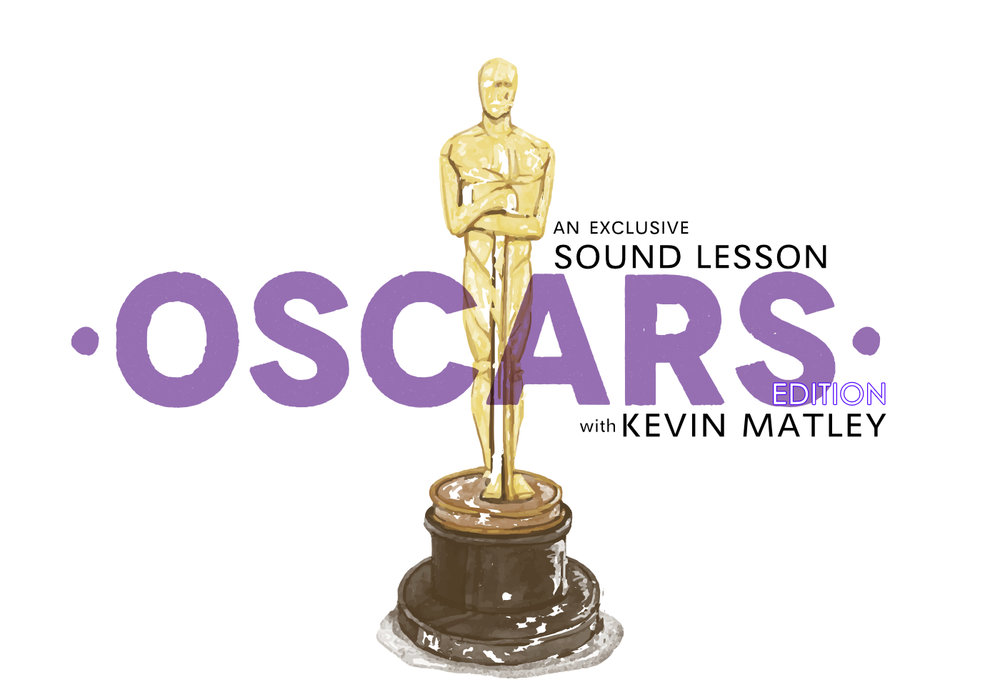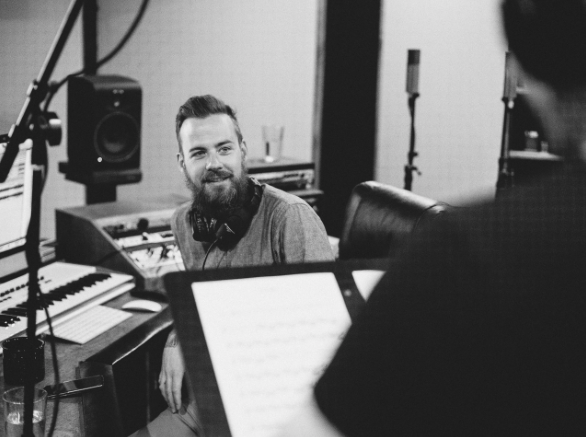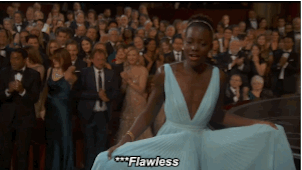
What goes into constructing a heart-achingly beautiful movie score? The type that tips an already emotional scene into “sweating from your eyes” territory. To craft something of this nature, there must be a harmonious understanding between the director’s vision and the composer’s score, both working together to create that moment.
Even if you haven’t viewed this year’s selection of Oscar nominated films, you may be able to recall a past film solely from its iconic theme or soundtrack. Remember Titanic? Aside from earning almost every award under the sun, the film’s orchestral score became the highest-selling score in history. Atop this already noteworthy achievement, the film nabbed Best Original Dramatic Score that year — along with Best Sound Editing and Best Sound Mixing.

Film composer and Sound Designer, Kevin Matley
But at the end of the day, what makes an original score this kind of impactful? To explore this topic, we reached out to one of our go-to film composers and Sound Designer, Kevin Matley. An ADDY Award winning Sound Designer, Matley is no stranger to deconstructing a scene to deliver cohesive, clever, and cinematic sound.
With his expertise, Matley breaks down this year’s Best Original Score nominations, sharing his approach to crafting meaningful scores, and how to “jump the shark” within your own creative process.
Marmoset: What we really admire about your approach to writing scores is how you view the big picture: how sound can contribute to the overall story. When looking at the nominations for Best Original Score, which one stands out specifically for notably building up (or supporting) the story unfolding on screen?
Kevin Matley: That’s a tough call. I’d have to go with Dunkirk. At times gratuitous, Hans’ score took the intensity of the film three floors up. If you removed his score, it would view as a bunch of people waiting on a beach and some others in boats and a plane. Fair to say it would not have nearly the same impact.
That’s not to say that what the other composers added to their respective films didn’t elevate their stories or bring them further to life. It’s that with this specific genre and the direction the film needed to go, Hans took it further than the rest could have.
However, Dunkirk doesn’t have my vote for the win due to some of the synth textures, which felt a little too EDM for the picture at times. I will say, I’m incredibly jealous of the ambient swells in the beginning. An amazing sonic landscape to open the film.
Do you have a prediction on who you think will take home the little golden statue?
I’d really like to see Jonny Greenwood take it. His score is by far the most creative without distracting from the story. However, Alexandre Desplat is my guess for the win. He seems to be an award magnet. Although an incredible writer, a few he’s won were a surprise not only because of the quality of the composition, but also the others in contention we’re far superior. Greenwood’s score was elegant, haunting, and leaps and bounds more creative than the rest.
While John Williams is arguably the best score writer of all time and the Star Wars themes arguably some of the best ever written, the new cues he wrote for The Last Jedi were not his best. However, I have grace for him given what he was working with. The movie was pretty bad.
Also, I’m really surprised Three Billboards was nominated for best score. I would have put Blade Runner in the mix far before that one.
Has there ever been a particular project where you saw the finished score and thought about how you would have approached the project differently?
Every project I work on. I think I’ll always be chasing the perfect score and I hope that never goes away. My dangling carrot is that my standards are far higher than I can achieve. It drives me insane but also motivates me.
Without bagging on any writers specifically, I’ll say I’ve seen countless films with poorly timed or unimaginative music. But I know very well that this line of work can have a lot of cooks in the kitchen. Sometimes directors, music supervisors, producers, and other people working on a film can have really bad ideas, and as much as the composer— or even the director for that matter — fight for what’s best, they end up going with what upper management wants. You can have people that might have a lot of money invested and those guys tend to have the least desire for risk. They want something safe and innocuous that will sell. I get it, but when we’re making art sometimes you have to take a risk and step out on a ledge a bit and do something dangerous.
In the end, I’ve learned you to have grace for the composer rather than blame them for something that might not have been their fault.
How do you deconstruct a scene as the composer? Are there any variables that influence your approach?
It varies tremendously depending on my talks with the director and how we see the vision of the film. Assuming I have all my themes and palette decided upon, I first think about how forward or inconspicuous the music should feel. Sometimes we have to communicate a loud statement with the music. Other times we have to be out of the way and fluid so as not to distract the viewer and give a more subconscious account of the emotional undertone. This is a very delicate balance that I will be learning to walk for the rest of my career.
Next, I think about how ironic the music should be and ask: Is this hopeful section meant have a sad tone that tells the weight of the whole story? Should this scene have an underlying sense of hostility even though there’s humor in the dialog? What is the picture saying in respect to the story?
Then I mostly concern myself with what’s surrounding the scene and the overall temperature and color we’re trying to create based off of the story. I tend to zoom out a bit when tying scenes together. A lot can happen in a single minute of film, so I try to think about what the spirit of the film is and how it pertains to these shots that need music to tell that part of the narrative.
I learned this years ago when I paused a film to reload my ice cream and check on my cat. When I came back and hit play, for a second I forgot where I was in the film and I noticed the music didn’t fit the scene at all. I was really struck by this. It was loud and aggressive over people having an intimate conversation. I saw that in context there was a sense of instability and aggression surrounding this brief moment of two people calmly conversing and I realized that sometimes it works really well to just plow through an emotional valley to keep the overarching emotion intact and move the story. In context, you wouldn’t have thought twice about it.
The reality is, it’s all a giant Tetris puzzle that I have no idea how to solve until I watch the final product and think about how much better I could have done.
Are there any well-known composers who you view as trailblazers in the film industry? Do you borrow or happen to have any parallel techniques you both utilize?
It’s with a very heavy heart that I say Jóhann Jóhannsson. Jóhann was one of the trailblazers I followed with great admiration and respect. It’s not often that one of my favorite films includes one of my favorite scores. Sicario and Arrival are among the few I could say that about. His use of abstract soundscapes and outside the box composing has inspired me countless times and will continue to for years.
Thank you to the thoughtful genius, Kevin Matley for sharing his knowledge in the second part of our ‘Sound Lesson’ series. Stay tuned for our next upcoming lesson as we continue dissecting the intricacies of creating flawless music and scores for the big screen.

